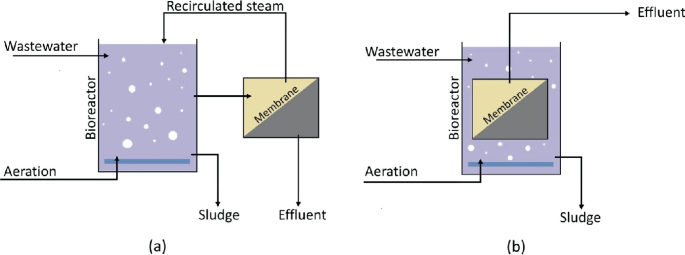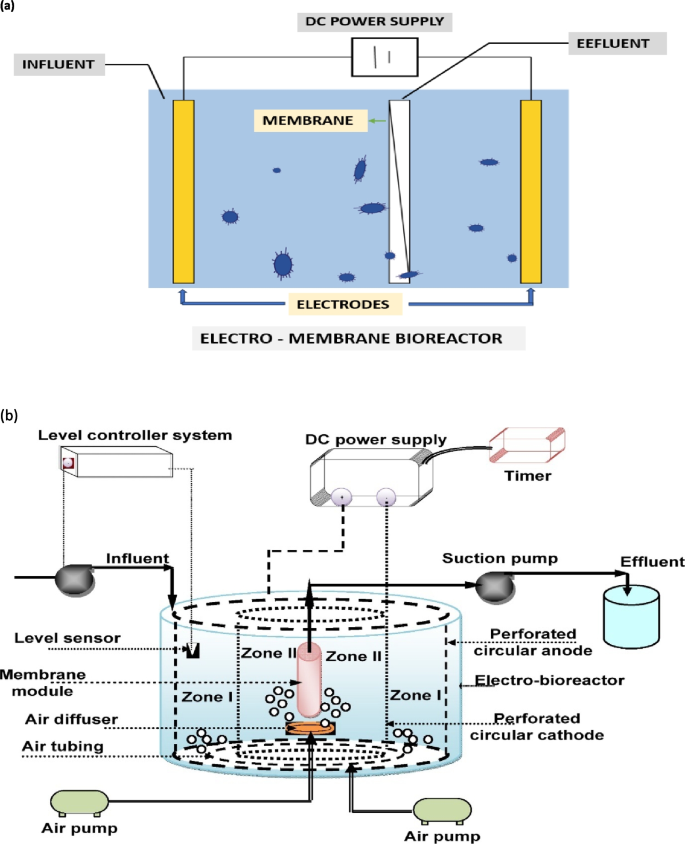How Membrane Bioreactors Are Changing Water Filtration Equipments
The development of membrane layer bioreactors (MBRs) stands for a significant development in the field of water purification, merging biological therapy processes with innovative membrane filtering technologies. This combination not only improves the top quality of dealt with effluent however also addresses urban room restrictions, making MBRs specifically suitable for largely inhabited areas. As worldwide water shortage magnifies, the duty of MBRs in assisting in safe and clean water reuse and sustainable water administration becomes increasingly crucial. The ramifications of this modern technology extend past efficiency-- what opportunities and difficulties lie in advance for its widespread execution?
Review of Membrane Bioreactors
Membrane bioreactors (MBRs) represent a substantial innovation in water purification modern technology, as they combine biological treatment processes with membrane purification. This integration boosts the effectiveness of wastewater treatment by making use of microbes to weaken organic contaminants while all at once employing semi-permeable membrane layers to separate treated water from put on hold pathogens and solids.
The MBR system normally includes a biological reactor where the microbial population metabolizes pollutants, followed by a membrane layer filtering unit that preserves biomass and enables just tidy water to pass through. This twin functionality leads to greater effluent top quality compared to standard treatment techniques. MBRs can be operated in both batch and constant flow settings, providing flexibility in style and application.
They likewise enable the recuperation of water for reuse, hence contributing to water sustainability initiatives. Generally, MBRs are at the forefront of enhancing water therapy efficiency and top quality, showcasing the potential for ingenious options in environmental monitoring.
Benefits of MBR Technology
The assimilation of organic therapy with membrane layer purification uses countless benefits for water filtration processes. Among the key advantages of Membrane Bioreactor (MBR) technology is its capacity to effectively eliminate both not natural and organic pollutants, leading to top quality effluent. The membrane layers function as a physical obstacle, stopping suspended solids and microorganisms from going through, which improves the total safety and security and integrity of cured water.
Furthermore, MBR systems need a smaller sized footprint compared to conventional treatment methods, enabling a lot more effective space utilization. This compact style is specifically helpful in urban setups where land is restricted. MBRs additionally show operational versatility, fitting varying influent top qualities and flow rates without considerable performance destruction.
Moreover, the procedure uses boosted nutrient removal capacities, specifically for nitrogen and phosphorus, which are critical for protecting against eutrophication in obtaining waters. The decreased sludge manufacturing connected with MBR technology also converts to reduce disposal costs, making it an affordable service over time - Membrane Bioreactor. Overall, the benefits of MBR technology position it as a leading option for innovative and lasting water purification systems, addressing both environmental and economic issues
Applications in Water Purification
Applications of Membrane Layer Bioreactor (MBR) innovation in water purification are impactful and diverse, attending to different treatment needs throughout multiple industries. MBRs properly combine biological treatment procedures with membrane layer purification, making them excellent for municipal wastewater treatment, industrial effluent management, and important link even potable water reuse efforts.
In local setups, MBRs are increasingly utilized to enhance the high quality of dealt with wastewater, enabling for conformity with rigid discharge regulations and assisting in the recycling of water for watering and non-potable uses. Their small layout additionally makes them appropriate for metropolitan atmospheres where space is limited.
Industrially, MBR modern technology is utilized to deal with process water and wastewater, especially in markets such as food and beverage, drugs, and textiles. By effectively removing pollutants and suspended solids, MBRs aid markets decrease ecological effects while recovering important sources from wastewater streams.
Additionally, MBRs are obtaining traction in decentralized water treatment applications, where small-scale systems can be released in remote areas or creating areas. This adaptability makes it possible for communities to achieve lasting water management remedies, boosting accessibility to tidy water while decreasing reliance on traditional therapy methods.
Study and Success Stories

In another example, a textile manufacturing facility in Bangladesh embraced MBR modern technology to resolve its wastewater challenges. The system lowered chemical oxygen need (COD) levels from 1,200 mg/L to much less than 100 mg/L, hence satisfying regulative requirements and significantly reducing ecological influence.
The University of Cape Community's MBR installment has actually confirmed reliable in dealing with greywater for non-potable reuse on school. This job not only preserves drinkable water yet also offers as an instructional design for sustainable techniques.
Furthermore, a fish and shellfish processing plant in Norway made use of MBR innovation to deal with effluents consisting of high degrees of raw material, attaining over 90% toxin removal. These instance studies underscore MBR innovation's convenience and its vital duty in enhancing water quality across varied applications.
Future of Water Therapy Solutions
As worldwide water deficiency and contamination challenges increase, cutting-edge water treatment remedies are coming to be progressively necessary to guarantee sustainable accessibility to clean water. The future of water therapy hinges on the assimilation of advanced technologies that boost the efficiency and effectiveness of purification processes. Membrane layer bioreactors (MBRs) go to the leading edge of this advancement, integrating biological therapy with membrane layer filtering to generate high-grade effluent appropriate for various applications.

Arising trends such as resource recovery from wastewater, consisting of nutrients and site link energy, will certainly even more change treatment facilities right into green hubs. Developments in nanotechnology and membrane layer products assure improved performance and durability of filtration systems.

Verdict
Their role in safe and clean water reuse and lasting water management highlights their significance in attending to worldwide water deficiency challenges. Proceeded research and development will certainly even more boost the effectiveness and adoption of MBR modern technology, ensuring a durable future for water therapy services.
The introduction of membrane bioreactors (MBRs) represents a significant advancement in the area of water purification, merging organic therapy procedures with sophisticated membrane filtration technologies. As worldwide water deficiency intensifies, the duty of MBRs in facilitating potable water reuse and lasting water management comes to be significantly crucial. They additionally enable the recuperation of water for reuse, therefore contributing to water sustainability efforts.As worldwide water find more scarcity and air pollution obstacles heighten, innovative water therapy remedies are ending up being significantly essential to make certain lasting accessibility to tidy water. Their duty in drinkable water reuse and sustainable water administration highlights their importance in resolving worldwide water deficiency challenges.